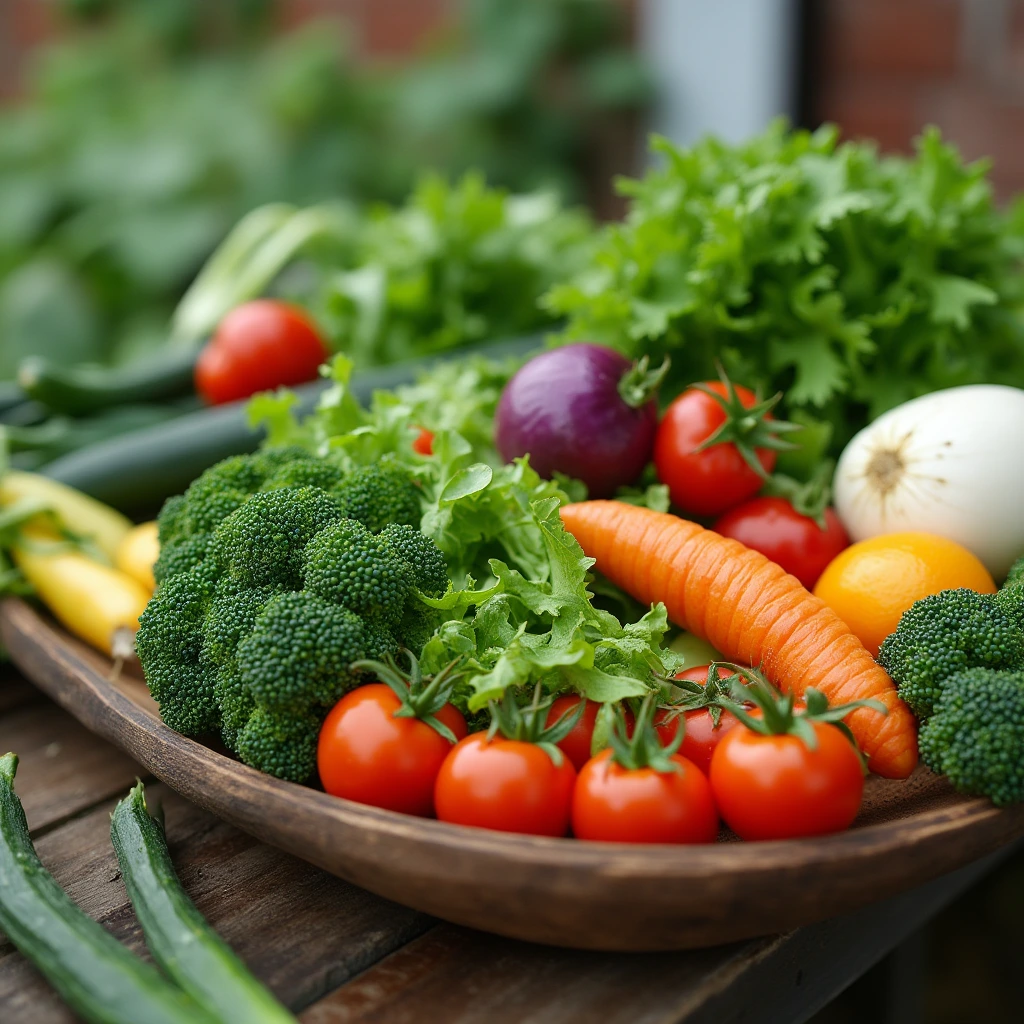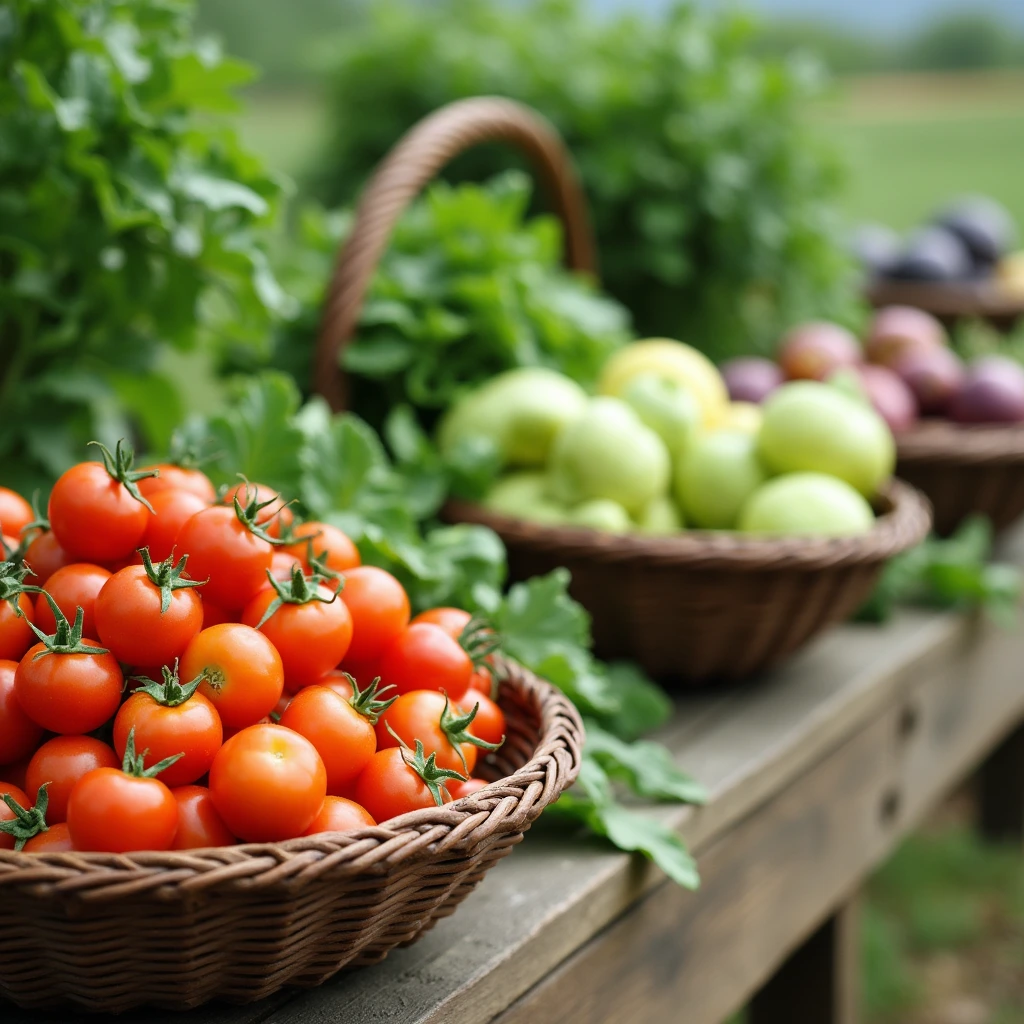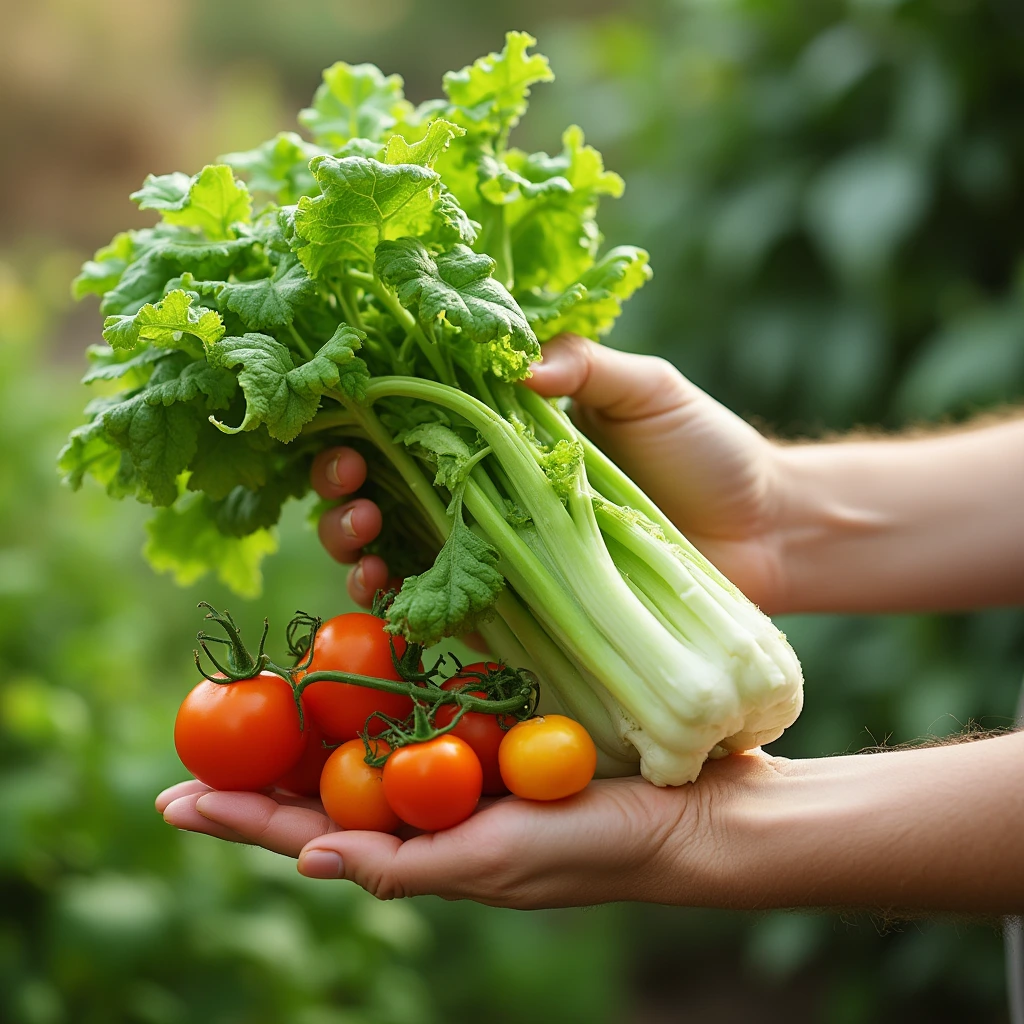The Benefits of Eating Organic Vegetables
In recent years, more and more people have begun to pay attention to what they eat, not only to stay healthy but also to protect the environment. Among all the dietary changes, switching to organic vegetables has become one of the most popular and beneficial trends. But what exactly makes organic vegetables so special? Why do they cost a bit more, and are they truly better for your body and the planet? In this article, we will explore the science-backed benefits of eating organic vegetables and how making this simple change can positively transform your health and lifestyle.
![]()
What Are Organic Vegetables?
Organic vegetables are grown without the use of synthetic fertilizers, pesticides, genetically modified organisms (GMOs), or chemical preservatives. Instead, organic farmers rely on natural processes such as composting, crop rotation, and biological pest control to grow their produce. This approach not only produces cleaner and healthier food but also helps preserve soil fertility and biodiversity for future generations.
When you buy organic vegetables, you’re choosing products grown with respect for both nature and human health. The certification standards for organic farming are strict, ensuring that each product labeled as “organic” meets environmentally friendly and sustainable criteria.
1. Higher Nutritional Value
One of the most well-documented benefits of eating organic vegetables is their superior nutritional profile. Studies have shown that organically grown produce often contains higher levels of essential nutrients compared to conventionally grown vegetables. These include:
- Antioxidants: Organic vegetables tend to have more antioxidants, which help protect your body from free radicals and reduce the risk of chronic diseases such as cancer and heart disease.
- Vitamins and Minerals: Vitamins like vitamin C and minerals like iron, magnesium, and phosphorus are often found in greater concentrations in organic vegetables.
- Better Taste and Freshness: Because they are grown in nutrient-rich, chemical-free soil and often sold locally, organic vegetables are fresher and more flavorful.

2. Free from Harmful Chemicals
Conventional farming heavily relies on pesticides and herbicides to protect crops from insects and weeds. However, these chemicals often leave residues on the vegetables you eat. Over time, consuming foods with pesticide residues can harm your body, potentially affecting your hormones, nervous system, and even increasing the risk of certain cancers.
Organic vegetables, on the other hand, are grown without synthetic chemicals. This means when you eat organic, you reduce your exposure to toxic substances and support your body’s natural detoxification process. For families with children, this benefit is even more important since kids are more sensitive to chemical residues than adults.
3. Supports a Healthier Digestive System
Organic vegetables promote a healthier digestive system because they contain more natural enzymes, fiber, and beneficial microbes. When vegetables are grown without chemicals, their natural microbiome remains intact, which helps improve gut health. A balanced gut flora can boost your immune system, improve nutrient absorption, and even positively affect your mood.
Furthermore, organic food often has a more natural balance of fiber and water, supporting regular bowel movements and a clean digestive tract. If you’ve been struggling with bloating, constipation, or poor digestion, adding more organic greens to your diet can make a noticeable difference.
4. Better for the Environment
Eating organic vegetables is not only good for you—it’s also a powerful way to help protect the planet. Organic farming methods are designed to work in harmony with nature. Here are some of the key environmental benefits:
- Reduced Pollution: Organic farming avoids chemical runoff that pollutes rivers and groundwater.
- Healthier Soil: Natural fertilizers like compost and manure improve soil fertility and structure, promoting long-term sustainability.
- Biodiversity Protection: Organic farms support beneficial insects, birds, and pollinators, which are essential for a healthy ecosystem.
- Lower Carbon Footprint: Organic farms typically use less energy and release fewer greenhouse gases than conventional farms.
When you choose organic vegetables, you’re supporting farming practices that prioritize the planet’s health as much as your own.

5. Helps Avoid Genetically Modified Organisms (GMOs)
Organic standards strictly prohibit the use of genetically modified seeds or plants. Many consumers prefer to avoid GMOs due to concerns about long-term health effects and environmental risks. By eating organic, you can be confident that your vegetables are 100% GMO-free and grown through natural and transparent agricultural practices.
6. Strengthens the Immune System
Because organic vegetables are free from synthetic additives and grown naturally, they help your immune system function better. The higher antioxidant levels found in organic produce combat oxidative stress and inflammation, two major contributors to weakened immunity. Over time, eating organic vegetables regularly can help your body resist common illnesses like colds and flu, as well as chronic diseases linked to poor diet.
7. Encourages Mindful and Sustainable Living
Choosing organic vegetables is more than a dietary decision—it’s a lifestyle choice. When you buy organic, you become more aware of what you consume and how it impacts your health and the planet. This mindset often extends to other areas of life, such as reducing plastic waste, supporting local farmers, and eating more plant-based meals.
Furthermore, many people find that eating organic food encourages them to cook at home more often, experiment with fresh ingredients, and connect with their food on a deeper level. This sense of mindfulness can lead to better eating habits and overall well-being.
8. Better for Farmers and Local Communities
Organic farming promotes fair labor practices and supports small-scale farmers who prioritize sustainability over profit. By purchasing organic vegetables, you’re helping local farmers maintain ethical growing methods and keep their farms thriving. This not only benefits the local economy but also ensures that future generations can enjoy nutritious, toxin-free produce.
9. Reduced Risk of Chronic Diseases
Several studies suggest that people who consume more organic vegetables may have a lower risk of chronic diseases such as diabetes, cardiovascular disease, and certain types of cancer. This is largely due to the combination of higher nutrient density and lower exposure to harmful substances. Antioxidants and phytochemicals in organic vegetables work synergistically to repair cells, fight inflammation, and slow down aging.

10. Delicious and Fresh Flavor
Last but not least, organic vegetables simply taste better. The absence of chemical fertilizers allows the plants to grow more naturally, developing richer and more complex flavors. Once you experience the freshness and sweetness of organic tomatoes, lettuce, or carrots, it’s hard to go back to conventional produce.
Conclusion
Eating organic vegetables is one of the best decisions you can make for your health, your family, and the planet. They are richer in nutrients, free from harmful chemicals, and grown in harmony with nature. By making organic produce a regular part of your diet, you’re not only investing in your well-being but also contributing to a more sustainable and ethical food system.
Whether you buy them from local farmers’ markets or grow your own organic vegetables at home, the benefits are undeniable. So next time you prepare a meal, fill your plate with colorful organic greens and enjoy the taste of natural health and sustainability.